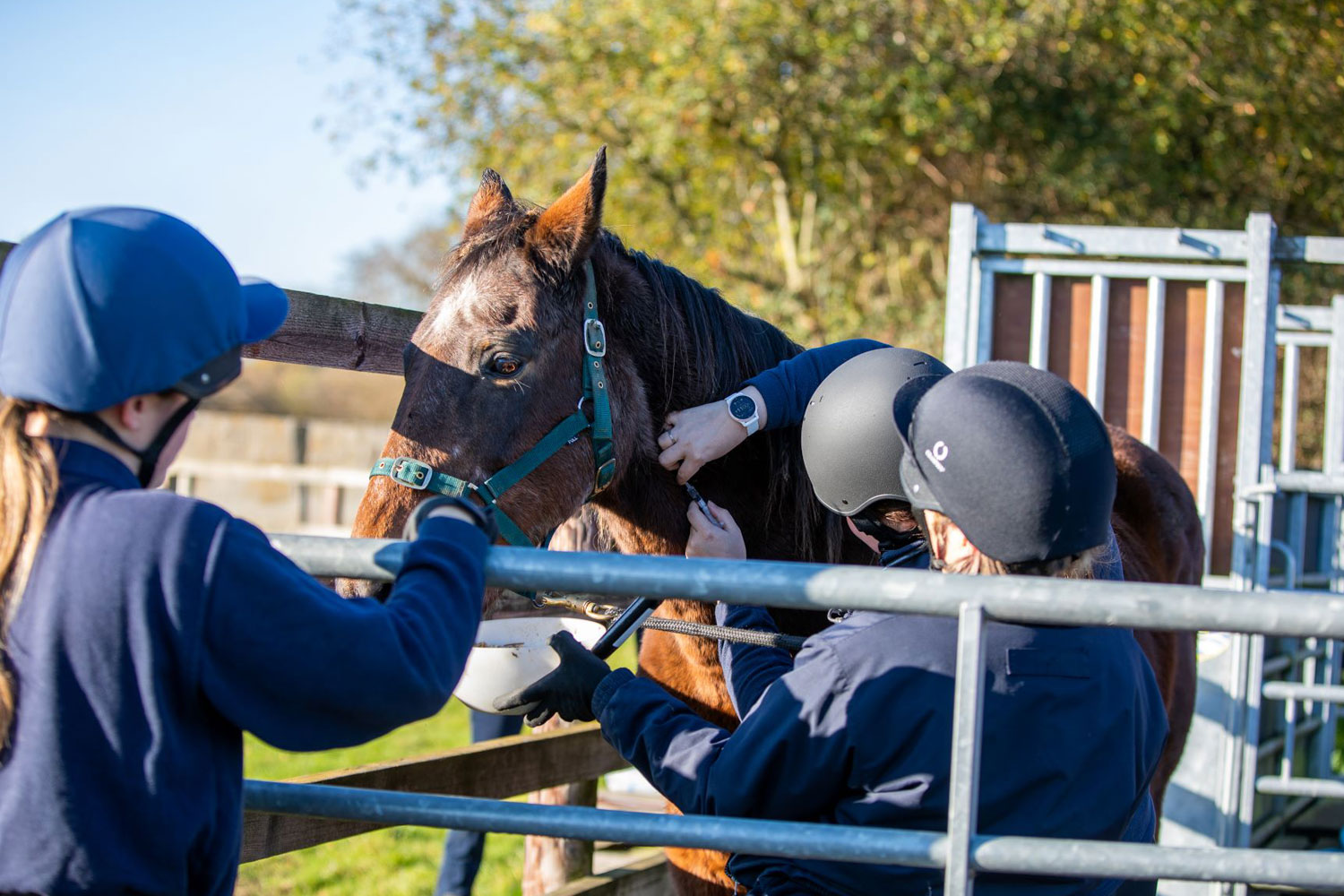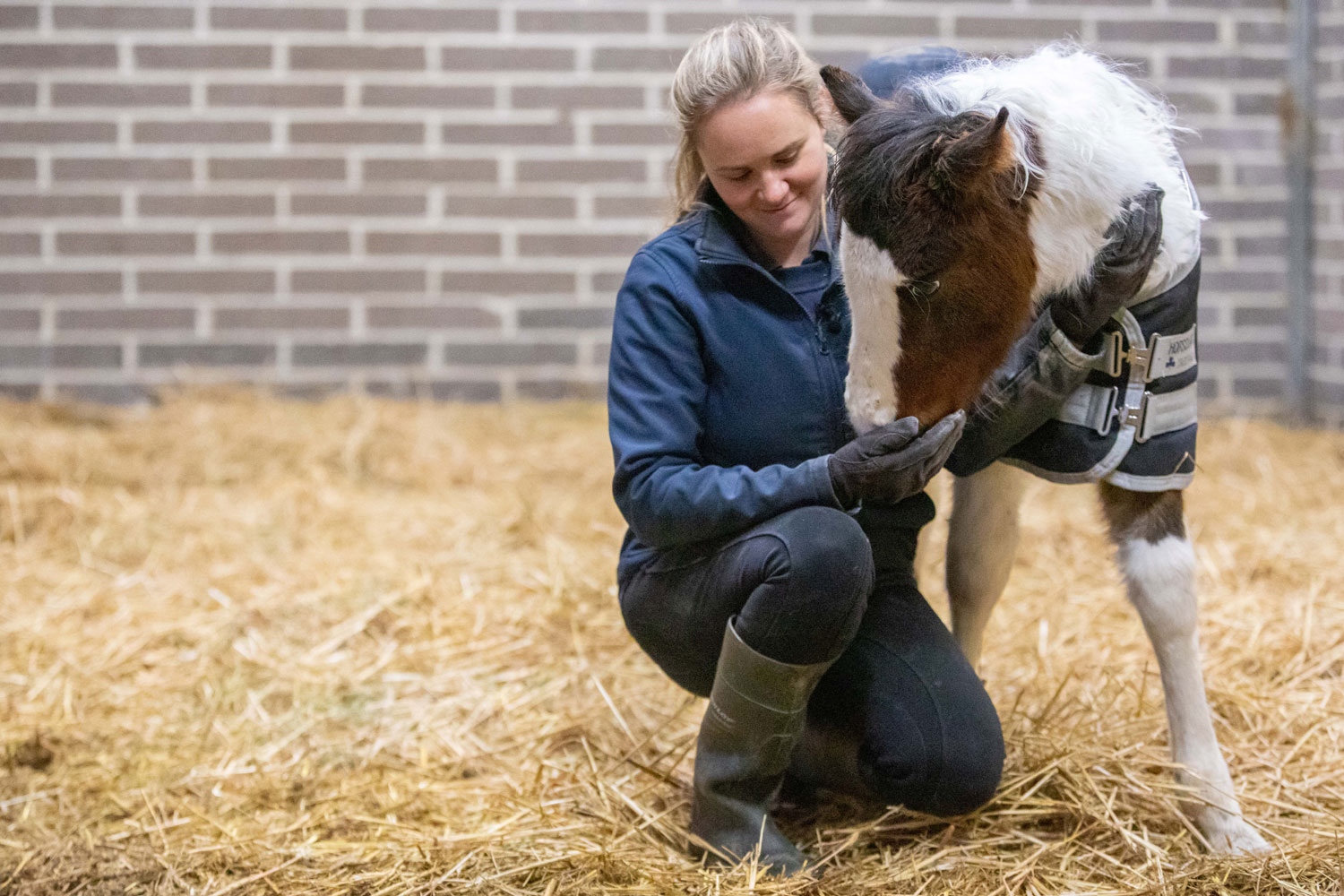The grant will help transform the isolation facilities at our Hall Farm Rescue and Rehoming Centre, in Norfolk.
Posted on 13/10/2022

Our Hall Farm Rescue and Rehoming Centre in Norfolk has an exciting project ahead, partly thanks to a hugely generous grant of £90,000 from The Pets At Home Foundation. The grant has been awarded to help fund a much-needed redevelopment of Hall Farm’s existing isolation facilities and crew yards, both of which are vital to the rehabilitation process.
Due to the nature of our work, we take in horses and ponies from all kinds of backgrounds, many of whom have an indeterminate health status. It’s good practice to ensure any new arrival on a yard undertakes a period of isolation before being integrated into a herd so that you can be sure they aren’t carrying any infectious diseases which could spread amongst the existing residents.
Aside from quarantine requirements, many of the equines who come to us also need urgent veterinary care and are simply not strong enough to be turned out with others to begin with. The crew yards at all four of our Rescue and Rehoming Centres are integral to the rehabilitation process, as they provide a suitable space for new arrivals in need of expert care to be nursed back to health. They can also be invaluable in helping to get nervous, unhandled horses used to being around humans safely, especially when combined with a system of trackways to help us move groups of semi-feral horses with as little stress as possible.
The grant will be instrumental in helping to transform these vital facilities, so we’d like to say a huge thank you to The Pets At Home Foundation.
Topics
Related News

Little Holly was found frightened, alone and hungry, but now she’s safe this Christmas
From death's door to World Horse Welfare's face of Christmas – watch little Holly's story so far.

Herd of horse sculptures gallops into town
A unique trail of 10 horse sculptures will be galloping into the towns of Windsor and Eton this Easter weekend as part of charity, World Horse Welfare’s ‘World Horse Trail’.
Recommended Blog Posts

Life beyond rescue: “We’ve really grown together”
We catch up with 9-year-old native pony Usain and his rehomer Sarah-Jayne.

Celebrating our London Marathon runners
We catch up with our six runners to see what running the London Marathon is really like.

Let’s put the horse’s perspective at the centre when making rules for horse sport
We reflect on the FEI’s new ‘blood rule’ in showjumping.
Enjoy reading stories like this?
Join over 65,000 other horse lovers and sign up for our email newsletter

Join over 65,000 other horse lovers and sign up for our email newsletter
Sign me up now